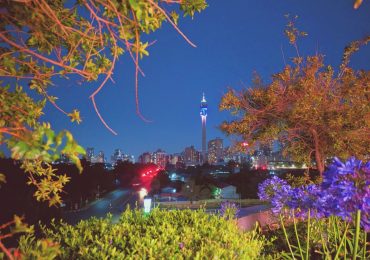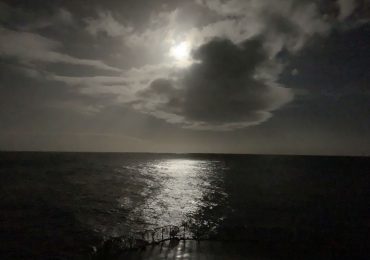Ethiopian–American writer Meron Hadero has been awarded the 2021 AKO Caine Prize for African Writing, for her short story ‘The Street Sweep’.
Hadero becomes the first Ethiopian writer to win the prize since its inception in 2000.
This year’s chair of juges, Goretti Kyomuhendo, Founder and Director of the African Writers Trust, announced Hadero as the winner of the £10,000 prize (about R204,000) in a video online.
‘The Street Sweep’ is available to read now on the Caine Prize website.
Kyomuhendo said of ‘The Street Sweep’:
‘The genius of this story lies in Hadero’s ability to turn the lens on the clichéd, NGO story in Africa to ‘do good and do it well’. It takes us away from the external organisation coming to Ethiopia to help the poor, and focuses the narrative on Getu, an eighteen-year-old street sweeper, figuring out ways to navigate the nuances of the rich and poor. Utterly without self-pity, it is Getu’s naivety that endears us to him.
‘“The Street Sweep” is superbly crafted, the language fluid and weighted with colour and memorable symbolism. Optimism, trust and betrayal ride side by side; but ultimately, this is a story about the redeeming power of hope: “Hope is the greatest asset a man can have.”
‘What stood out for the judges was the story’s subtle, but powerful ending, and how everything comes brilliantly together in a clever twist, that sees Getu transform; and the reader pushed to question the thin line between “making it”, and the necessary subjugation of the soul.’
An anthology containing the five 2021 Caine Prize shortlisted stories will be published along with two short stories from the Prize’s Online With Vimbai programme, by Rafeeat Aliyu and TJ Benson.
About the winner
Meron Hadero was born in Addis Ababa and moved to the United States via Germany as a young child. She was the winner of the 2020 Restless Books Prize for New Immigrant Writing, and was shortlisted for the Caine Prize for her story ‘The Wall’ in 2019. Her fiction has been published in ZYZZYVA, Ploughshares, Addis Ababa Noir, McSweeney’s Quarterly Concern, The Iowa Review, The Missouri Review, New England Review, Best American Short Stories, among others, and her writing has also been in The New York Times Book Review, The Displaced: Refugee Writers on Refugee Lives, and will appear in the forthcoming anthology Letter to a Stranger: Essays to the Ones Who Haunt Us. She is a 2019–2020 Steinbeck Fellow at San Jose State University, and has been a fellow at Yaddo, Ragdale, and MacDowell. Her writing has been supported by the International Institute at the University of Michigan, the Elizabeth George Foundation, and Artist Trust. Meron is an alumnus of the Bill and Melinda Gates Foundation, where she worked as a research analyst for the President of Global Development, and holds an MFA in creative writing from the University of Michigan, a JD from Yale, and a BA in history from Princeton with a certificate in American Studies.
Joining Meron on this year’s shortlist were:
- ‘Lucky’ by Doreen Baingana (Uganda) published in Ibua Journal, Online in Kampala, Uganda, 2021. Read her story here.
- ‘The Giver of Nicknames’ by Rémy Ngamije (Namibia) published in Lolwe, Kenya, 2020. Read his story here.
- ‘This Little Light of Mine’ by Troy Onyango (Kenya) published in Doek! Literary Magazine, Namibia, 2020. Read his story here.
- ‘A Separation’ by Iryn Tushabe (Ugandan) published in EXILE Quarterly, Canada 2018. Read her story here.
Each AKO Caine Prize shortlisted writer receives £500 (about R10,200).
Alongside Kyomuhendo on the 2021 judging panel were Razia Iqbal, a BBC News Presenter on Newshour on the World Service, and the World Tonight on Radio 4; Victor Ehikhamenor, an award-winning multimedia artist, photographer and writer whose works have featured in several international exhibitions including the 57th Venice Biennale; Georgina Godwin, an independent broadcast journalist and a regular chair of literary events; and Nicholas Makoha, a Ugandan-born writer and the founder of The Obsidian Foundation.
Last year’s Caine Prize winner was Irenosen Okojie, for her story ‘Grace Jones’.





